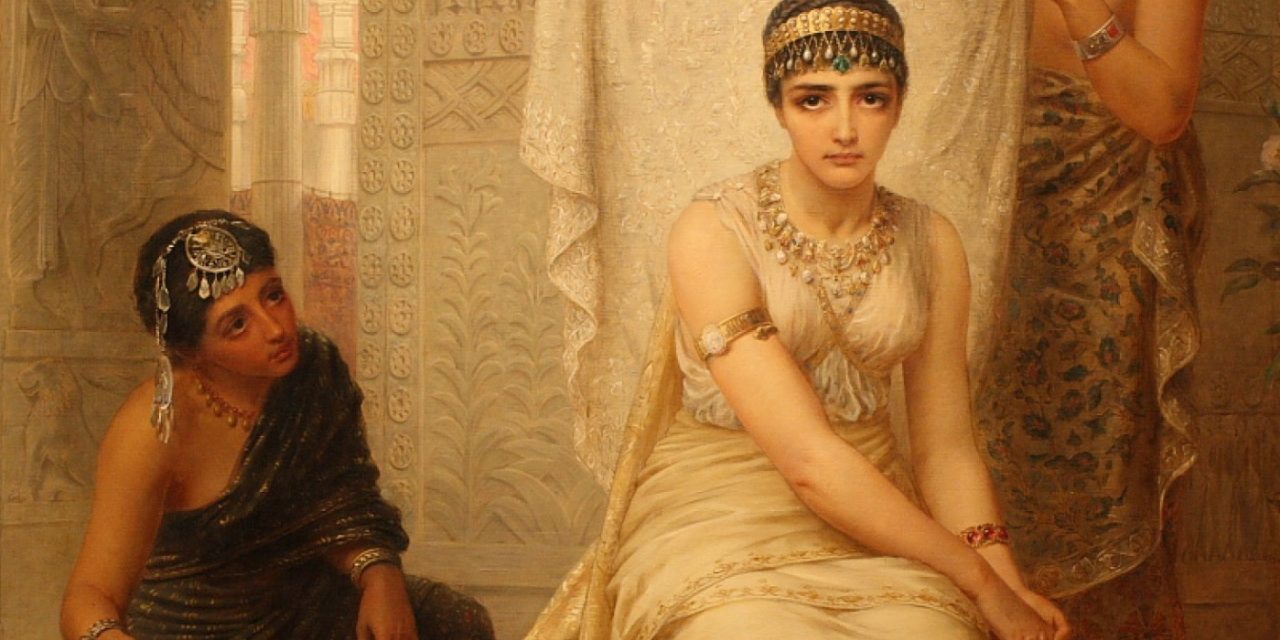When God makes a promise, He never breaks it. Throughout history, God has revealed His sovereignty by positioning people, governments and circumstances to fulfil His plans and purposes. But He also calls upon those who love Him to respond to His call with obedience.
The young Queen Esther, a Jewish maiden, was chosen by God for an appointed time when the Jewish people lived under the Persian Empire. Her story was at the very centre of Middle East geopolitical events at the time. King Ahasuerus’ kingdom was the largest the world had ever seen. It covered the area now known as Turkey, as well as Iraq, Iran, Pakistan, Jordan, Lebanon, and Israel; it also encompassed sections of modern-day Egypt, Sudan, Libya, and Saudi Arabia.
The Jewish people faced a crisis when the king appointed Haman to take charge over all his affairs. Haman was an evil man that hated the Jews. His hatred wasn’t influenced by experiences, instead it was deeply rooted in his world-view, stemming from his heritage and grounded by his upbringing. He was a descendent of Agag, who was the king of the Amalekites, a people who were Israel’s enemy for generations. The spirit of antisemitism was once again emerging with potentially devastating repercussions.
Esther 3:8-9 records that Haman told the king, “There is a certain people dispersed among the peoples in all the provinces of your kingdom who keep themselves separate. Their customs are different from those of all other people, and they do not obey the king’s laws; it is not in the king’s best interest to tolerate them.”
The potential imminent genocide of the Jewish people, much like the Holocaust that happened during the 20th Century, began with a non-violent form of antisemitism. It began with a hatred for the Jewish people, simply for being Jews. This attitude of intolerance paved the way for a hatred so intense that the next question Haman asked was “If it pleases the king, let a decree be issued to destroy them.”
In today’s antisemitism, as it was in Esther’s day, the Jewish people are still hated simply for being Jews. Antisemitism is never excusable. It seems to have no rationality or logic, yet antisemitism always has its root. Whether found in the Far Left, the Far Right or in radical Islam, we must resolve to never be silent in confronting it. Even within the church, antisemitic attitudes exist today due to false teaching about God’s plan for Israel and the Jewish people. This is something that must be addressed.
Likewise, hatred for the State of Israel is a hatred for the Jewish people having their own State. Despite the persecution and injustice across the Middle East, antisemites will pick on the world’s only Jewish state, Israel. When leadership in Iran or the terrorist groups, Hamas, Hezbollah or ISIS call for the destruction of Israel, they mean the Jews. When pro-Palestinian protesters in London or New York or Sydney chant, “From the river to the sea, Palestine will be free” they are not talking about the so-called West Bank or Gaza, they are inferring the entire Land of Israel, the homeland of the Jewish people for over 3,000 years, will be “free of all Jews”.
Esther was a remarkable woman and an incredible example of wisdom and courage in the midst of this same hatred. She put her life on the line by deciding to intercede with the king on behalf of her beloved people despite the consequences. In those times anyone approaching the king without being summoned was immediately put to death.
“When done, I will go to the king, even though it is against the law. And if I perish, I perish” (Esther 4:16).
Esther had a love for Israel. She had a trust in God for Israel’s deliverance. But she also had a strategy. She enlisted Mordecai to gather the Israelites together and fast for three days, and by implication pray for her.
It is worth noting that hatred for Israel is not just a political matter – it is a spiritual one. Antisemitism is also anti-God. Praying for Israel is a wise foundation for standing with Israel practically. Esther recognised that the God of Abraham, Isaac and Jacob is the defender of Israel and it is only with His leading that the evil of antisemitism can be effectively countered.
Esther’s courageous decision to approach the king led to the saving of the Jewish people in Persia. Her bravery and willingness to stand up for her people reminds us that we must not be silent in the presence of evil, but must confront and eliminate it. We are reminded by history that while oppressors come and go, God’s promises and covenant with His people, Israel, last for ever.
The ancient evil of antisemitism exists in our world today and requires all those that follow the Bible to respond. Let us follow Esther’s example by not remaining silent when confronted by evil and standing for Israel “for such a time as this”.
This article first appeared in our free quarterly magazine TORCH. Click here to subscribe












